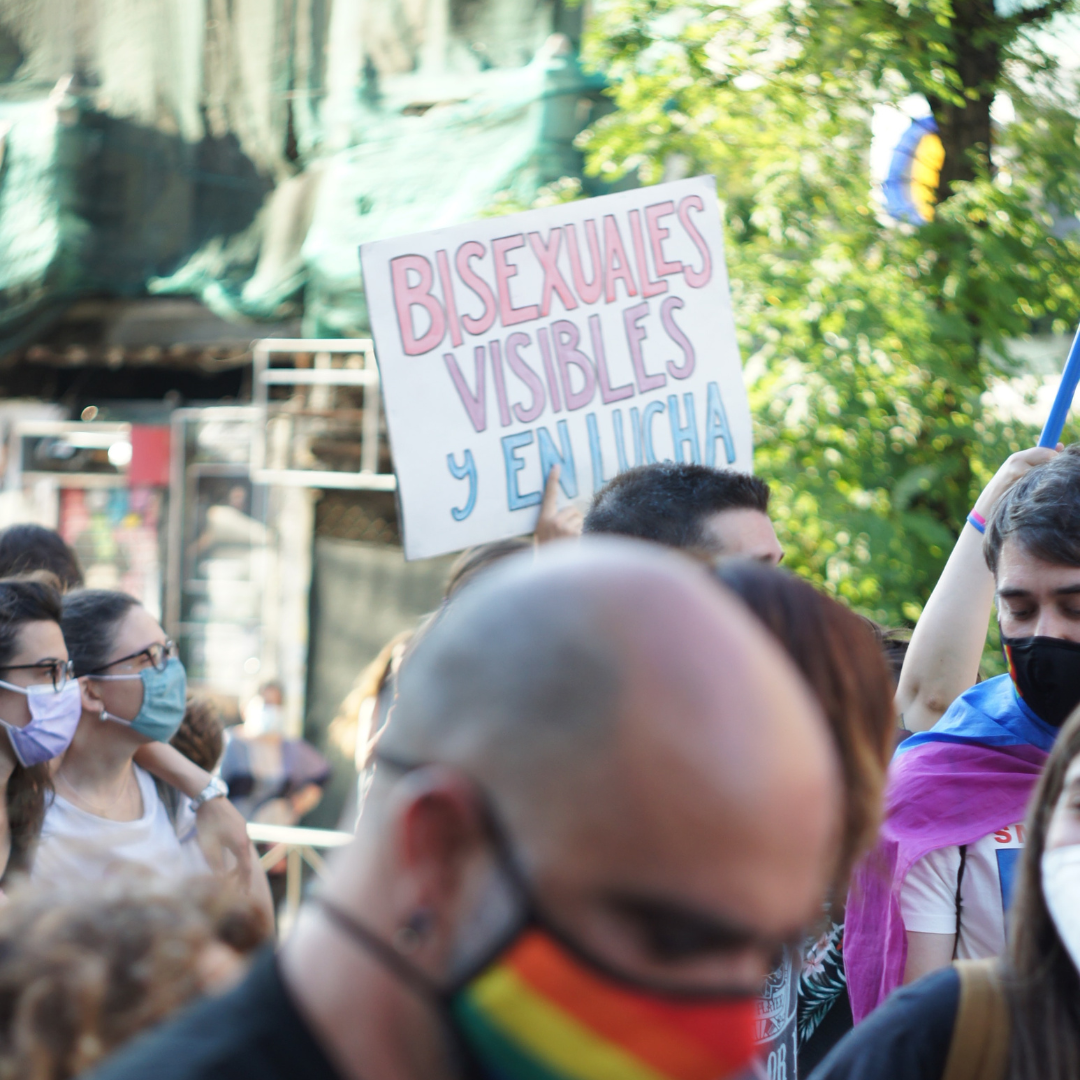#BiVisibilityDay 2022: Discrimination and bi people at the intersections

In our analysis of the data from the largest LGBTI survey carried in Europe, we’ve found that bi people, particularly those with intersecting identities, experience discrimination in large numbers.
It’s Bi Visibility Day, an opportunity to celebrate bi people, communities and history. However, while we celebrate, it can’t be ignored that bi people are still subject to unique discrimination rooted in damaging myths that have a damaging impact on individual lives, and particularly for those on the intersections. For bi people to enjoy full equality in our societies, we must acknowledge the discrimination they suffer, especially those who are also part of an ethnic minority, who are trans, or non-binary or who have a disability.
The 2019 EU Agency for Fundamental Rights (FRA) survey on LGBTI people in the EU and North Macedonia and Serbia found that bi people are exposed to discrimination at similar levels as other LGBTI people. With almost 140,000 participants, the FRA survey is the largest of its kind. It shows, for instance, that when looking for work or going to a shop, less bi respondents have experienced discrimination compared to LGBTI people overall, but at school bi people experience more discrimination than the average LGBTI person (20.26% of bi respondents versus 19.51% of LGBTI respondents).
However, it’s when it comes to bi people with intersecting identities that the biggest disparities are found. ILGA-Europe has drilled down into the FRA survey to analyse the experiences of bi people on the intersections. Here are some of the findings from our analysis.
The survey shows that while 19.22% of bi respondents experienced discrimination at work, this figure is over double for trans bi people of an ethnic minority, including migrant background, at 42.98%. The same goes for 27.32% of bi people with disabilities, 34.43% of trans bi people, 31.12% of non-binary bi people, and 25.62% of intersex bi people.
The bi experience of discrimination at work:
- Bi respondents overall: 19.22%
- Intersex bi people: 25.62%
- Bi people with disabilities: 27.32%
- Non-binary bi people: 31.12%
- Trans bi people: 34.43%
- Trans bi people of an ethnic minority*: 42.98%
Another stark example is health care or social services. While almost 15% of the overall bi respondent group experienced discrimination when accessing healthcare or social services, when it came to intersex bi people the figure was almost 50%. Meanwhile 43.56% of trans bi people of an ethnic minority and/or migrant background experienced similar discrimination, 34.86% of trans bi people, 29.77% of bi people with disabilities, 24.15% of non-binary bi people, and 17.79% of bi people of an ethnic minority.
Bi experience of discrimination when accessing health care or social services:
- Bi respondents overall: 14.72%
- Bi people of an ethnic minority: 17.79%
- Non-binary bi people: 24.15%
- Bi people with disabilities: 29.77%
- Trans bi people: 34.86%
- Trans bi people of an ethnic minority: 43.56%
- Intersex bi people: 43.72%
And that’s not all. Over 40% of respondents have felt discriminated when doing the following activities:
- 47.65% of bi trans female respondents have felt discriminated when looking for work.
- 42.98% of trans bi respondents of an ethnic minority have felt discriminated against at work.
- Between 40 and 44% of bi intersex, trans and trans respondents of an ethnic minority* have felt discriminated against when accessing healthcare or social services.
- Over 42% of bi trans male respondents and bi trans respondents of an ethnic minority have felt discriminated against at school.
- 40.36% of bi trans male respondents have felt discriminated against when showing their ID.
These figures are a stark reminder not only that bi people are often at risk of discrimination, but that this risk increases for certain members of the bi community.
ILGA-Europe will be publishing a full report based on our analysis for bi people from the FRA report later this year.
*Ethnic minority always includes migrant background